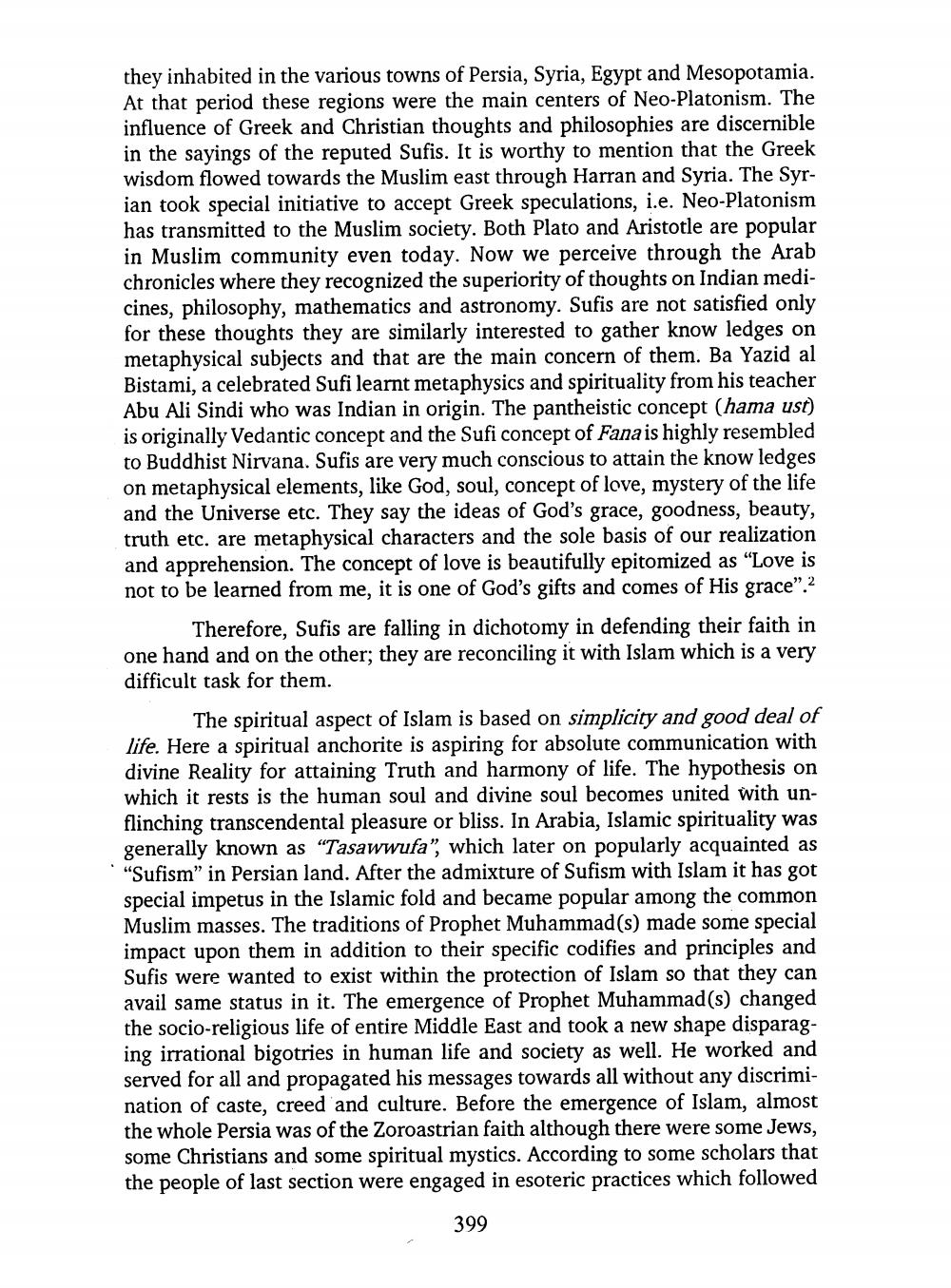________________
they inhabited in the various towns of Persia, Syria, Egypt and Mesopotamia. At that period these regions were the main centers of Neo-Platonism. The influence of Greek and Christian thoughts and philosophies are discernible in the sayings of the reputed Sufis. It is worthy to mention that the Greek wisdom flowed towards the Muslim east through Harran and Syria. The Syrian took special initiative to accept Greek speculations, i.e. Neo-Platonism has transmitted to the Muslim society. Both Plato and Aristotle are popular in Muslim community even today. Now we perceive through the Arab chronicles where they recognized the superiority of thoughts on Indian medicines, philosophy, mathematics and astronomy. Sufis are not satisfied only for these thoughts they are similarly interested to gather know ledges on metaphysical subjects and that are the main concern of them. Ba Yazid al Bistami, a celebrated Sufi learnt metaphysics and spirituality from his teacher Abu Ali Sindi who was Indian in origin. The pantheistic concept (hama ust) is originally Vedantic concept and the Sufi concept of Fana is highly resembled to Buddhist Nirvana. Sufis are very much conscious to attain the know ledges on metaphysical elements, like God, soul, concept of love, mystery of the life and the Universe etc. They say the ideas of God's grace, goodness, beauty, truth etc. are metaphysical characters and the sole basis of our realization and apprehension. The concept of love is beautifully epitomized as “Love is not to be learned from me, it is one of God's gifts and comes of His grace". 2
Therefore, Sufis are falling in dichotomy in defending their faith in one hand and on the other; they are reconciling it with Islam which is a very difficult task for them.
The spiritual aspect of Islam is based on simplicity and good deal of life. Here a spiritual anchorite is aspiring for absolute communication with divine Reality for attaining Truth and harmony of life. The hypothesis on which it rests is the human soul and divine soul becomes united with unflinching transcendental pleasure or bliss. In Arabia, Islamic spirituality was generally known as "Tasawwufa", which later on popularly acquainted as "Sufism” in Persian land. After the admixture of Sufism with Islam it has got special impetus in the Islamic fold and became popular among the common Muslim masses. The traditions of Prophet Muhammad(s) made some special impact upon them in addition to their specific codifies and principles and Sufis were wanted to exist within the protection of Islam so that they can avail same status in it. The emergence of Prophet Muhammad(s) changed the socio-religious life of entire Middle East and took a new shape disparaging irrational bigotries in human life and society as well. He worked and served for all and propagated his messages towards all without any discrimination of caste, creed and culture. Before the emergence of Islam, almost the whole Persia was of the Zoroastrian faith although there were some Jews, some Christians and some spiritual mystics. According to some scholars that the people of last section were engaged in esoteric practices which followed
399




